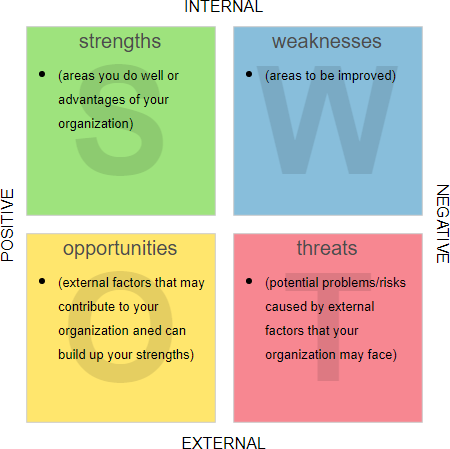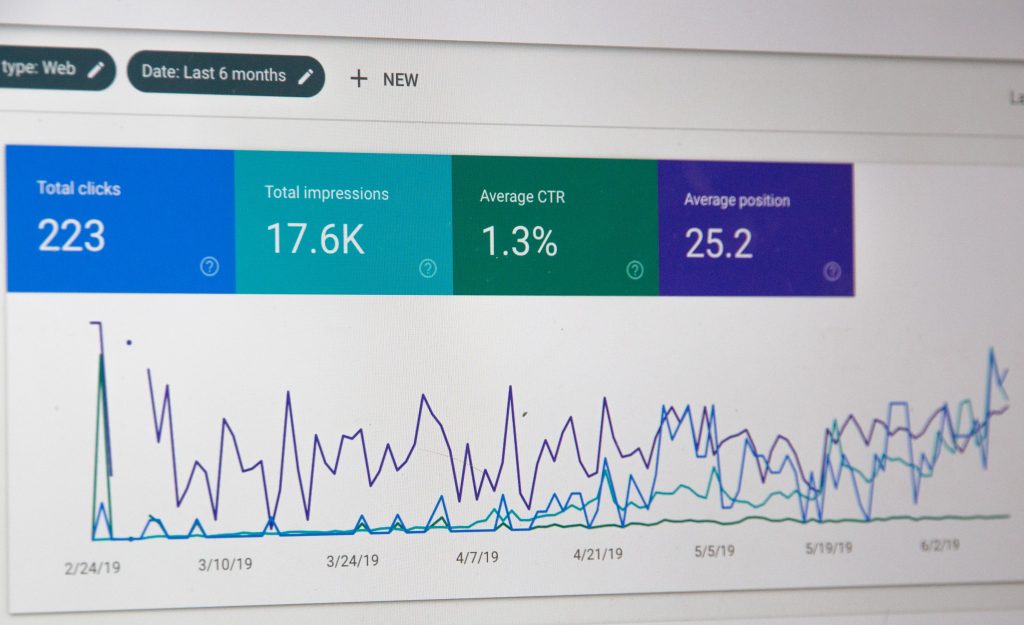إذا كنت تخطط لبدء عملك الخاص في مجال التصوير الفوتوغرافي - ضع في اعتبارك أنه بمجرد دخولك هذا المجال، فلن تصبح مجرد مصور فوتوغرافي، بل ستصبح رائد أعمال.
وفي وصفة النجاح في ريادة الأعمال، فإن أحد المكونات الرئيسية هو خطة عمل قوية.
"عند التحضير للمعركة، وجدت دائمًا أن الخطط لا فائدة منها، لكن التخطيط لا غنى عنه."
دوايت ايزنهاور

من المفيد التخطيط والإعداد.
تُعد خطة العمل أداة إستراتيجية حيوية لرجال الأعمال. فعندما يتم تنفيذها بشكل جيد، يمكنها أن تساعدك على التركيز على الأمور الأساسية في عملك بدلاً من إضاعة الوقت في اكتشاف أو تجربة الأمور أثناء العمل.
عندما يتعلق الأمر بتحقيق النجاح في بدء التشغيل، فإن وضع خطة عمل يمكن أن يحدث فرقًا كبيرًا. يمكنك تدوين عملية مفصلة أو جميع الخطوات اللازمة لتحويل رؤية عملك إلى عمل.
ومع ذلك، بالنسبة للعديد من الأشخاص، قد يكون إنشاء خطة عمل أو حتى مجرد التفكير في البدء في تنفيذها أمرًا مرعبًا ومخيفًا. فهم لا يعرفون ماذا يفعلون، أو كيف يبدأون، أو ما الذي ينبغي أن تتضمنه الخطة.
وإذا كنت أحد هؤلاء الأشخاص، فأنت في المكان المناسب.

تصوير فوتوغرافي خطة عمل لا يجب أن تكون تلك الوثيقة مخيفة ومعقدة ومليئة بالأرقام كما يعتقد معظم الناس.
من اجلك أعمال التصوير الفوتوغرافييجب أن تكون خطة عملك شيئًا تفهمه تمامًا، ويمكنك العمل به بكفاءة.
يجب أن يكون قادرًا على الإجابة على الأسئلة التالية:أين نحن الآن؟"،"أين نريد أن نكون؟"، و "كيف أذهب إلى هناك؟".
لمساعدتك في رحلتك، إليك دليلًا بسيطًا من 5 خطوات لإنشاء خطة عمل جيدة للتصوير الفوتوغرافي:
الخطوة 1: حدد التركيز
يأتي نجاح الأعمال بالتركيز، ونظرًا لأن التصوير الفوتوغرافي موضوع واسع النطاق، فيجب أن تأخذ قدرًا كافيًا من الوقت إختر المكانةلا يمكن لشركتك أن تكون الأفضل في جميع المجالات في نفس الوقت، سواء في الجودة، أو التسويق، أو التسعير، أو العلامة التجارية.
ابدأ باختيار مركز ثم قم بالبناء عليه. يتيح لك التركيز تطوير علامتك التجارية ويجعل عملائك المحتملين يعرفون ما تمثله شركتك وما يمكنك فعله لهم.
عينة:
هدفنا هو أن نكون استوديوًا حديثًا يقدم التصوير الفوتوغرافي للصور الشخصية للعملاء الأثرياء في منطقة مانهاتن.

الخطوة 2: إجراء أبحاث السوق الأساسية
2.1. الطلب في السوق
والخطوة التالية ستكون تقييم الأدلة على طلب السوق من أجل عملك. في هذه المرحلة، سيكون من الجيد أن تنظر إلى نجاحك المباشر المنافسين والصناعة إحصائياتوكلاهما مصدر غني بالمعلومات القيمة حول الطلب في السوق.
عينة:
على مدار السنوات الخمس الماضية، بلغ متوسط عدد جلسات التصوير السنوية التي قامت بها استوديوهات ABC Photography أكثر من 400 حفل زفاف بصور "حديثة/مرحة" في منطقة شيكاغو. وتُظهِر هذه البيانات أن هناك طلبًا كبيرًا في السوق على هذا النوع من الصور.
قائمة أسعارهم هي كما يلي: سعر المستوى الأول هو $10,000، وسعر المستوى الثاني هو $5,000، ومن خلال حساب متوسط السعرين يمكننا تقدير إيراداتهم بمبلغ $3 مليون. ($7,500 × 400)
2.2. المنافسون المباشرون
حدد أفضل ما لديك 4 منافسين مباشرين التي تقع ضمن مجال تخصصك ومنطقتك الجغرافية. هذه المعلومات ضرورية للخطوة التالية، وهي إجراء تحليل SWOT. قم بإدراجها للرجوع إليها.

الخطوة 3: إجراء تحليل SWOT وخطة العمل
3.1 نظرة عامة على تحليل SWOT
هذا هو الجزء الذي تقوم فيه بالبحث وإجراء دراسة حول عملك نقاط القوة والضعف والفرص الخارجية والتهديدات، ومن هنا SWOT.
ترتبط نقاط القوة بمزاياك الفردية كمصور.
أما نقاط الضعف، من ناحية أخرى، فهي مرتبطة بالجوانب التي قد تفتقر إليها.
يمكنك فهم نقاط قوتك بشكل أفضل عن طريق طرح بعض الأسئلة على نفسك، على سبيل المثال:
- ما هي المعدات التي تستخدمها؟ هل تعيقك؟
- هل تقوم بتعزيز صورك ببرنامج؟
- هل تقوم بتوقيع صورك؟
- ماذا تفعل بشكل مختلف عند التقاط الصور أو تحريرها؟
- ما هي النتيجة النهائية؟ ما هي المشاعر التي تثيرها؟
ولكن من ناحية أخرى، عليك أيضًا مواجهة نقاط ضعفك. والسبب هو أنك بحاجة إلى إصلاحها قبل أن يستغل شخص آخر نقاط ضعفك.
خذ في الاعتبار نقاط الضعف التالية، على سبيل المثال:
- ما هي الوسائط أو البرامج التي لا تستخدمها؟
- هل يطلب منك الناس شيئًا لا تريد أو لا تستطيع فعله؟
- هل اشتكى أحد من الصور التي تلتقطها؟ ماذا قال الناس؟
- هل تفتقر إلى أي معدات؟ ماذا سيحدث إذا لم يكن لديك أي منها؟

3.2. خطة العمل
قم بإعداد خطة عملك باستخدام تحليل SWOT كنقطة مرجعية.
عينة:
فيما يتعلق بمنتجنا، سنطبق جودة صورة عالية ومتسقة في جميع منتجاتنا، من لوحات الحائط إلى ألبومات الصور. وسنعمل أيضًا بجد للتأكد من أن جودة الصورة التي نعرضها على موقعنا الإلكتروني ومدوناتنا ستكون بنفس جودة منتجاتنا الفعلية، دون خداع. وبسعر معقول، نهدف إلى تقديم خدمة ممتازة ومنتجات عالية الجودة تفوق بشكل كبير منافسينا.
فيما يتعلق بالتسويق، سنركز بشكل كبير على تحسين محركات البحث أو تحسين المواقع الإلكترونية، وذلك باستخدام محتوى تسويقي ذي صلة ومناسب باستخدام الكلمات الرئيسية لزيادة عدد الزيارات إلى موقعنا الإلكتروني. وسنعمل أيضًا على تحقيق حضور قوي على Facebook من خلال النشر بانتظام والرد على استفسارات العملاء في الوقت المناسب.

الخطوة 4: تحديد السوق المستهدف
تعرف على عملائك/عملائك المحتملين على مستوى أعمق. قم بنشاط تقوم فيه بصياغة عملائك المثاليين الشخصياتتخيل أشخاصًا خياليين يتطابقون مع ملف تعريف أو نمط حياة شخص يريد الاستفادة من خدماتك.
حدد من 1 إلى 5 شخصيات لتكون بمثابة دليل مستمر لشركتك فيما يتعلق بالأشخاص الذين تستهدفهم خدماتك. يجب عليك الاستمرار في اختبار منتجاتك وخدماتك وتجديدها للتأكد من أنها ستتوافق بشكل جيد مع رغبات/احتياجات سوقك المستهدفة في أي وقت. فقط تذكر إعادة التقييم سنويًا.

الخطوة 5: حدد أهدافك
عند إنشاء الأهداف، تذكر إطار عمل SMART. يجب أن تكون أهدافك محدد, قابلة للقياس, يمكن تحقيقه, مناسب، و مرتبط بالوقت.
5.1. الأهداف طويلة المدى أو التنظيمية (1-2 سنة)
هذه هي الأهداف الأوسع التي تخطط لتحقيقها بمرور الوقت، مثل تحقيق إيرادات محددة أو زيادة الوصول إلى السوق.
عينة: تحقيق رقم أعمال للشركة بقيمة $500.000 بحلول عام 2021
5.2. أهداف متوسطة أو سنوية (سنة واحدة)
هذه خطوات وسيطة لتحقيق أهداف العمل التي يجب تحديدها ضمن أهدافك طويلة المدى. يجب أن تكون أهدافك المتوسطة هي تلك التي يمكن تحقيقها خلال عام واحد.
العينة: أن تكون قادرًا على حجز 50 عميلًا بحلول نهاية العام بمعدل $1000 لكل جلسة تصوير لزيادة إجمالي إيرادات الشركة بمقدار 30%.
5.3. أهداف قصيرة المدى أو أهداف العمل (1-3 أشهر)
هذه هي أهدافك "الحاضرة" للمساعدة في تحقيق أهدافك متوسطة المدى.
عينة: تواصل مع 100 عميل سابق عبر البريد الإلكتروني، لإبلاغهم بأي حدث ترويجي للصور الشخصية [GENRE] قادم بحلول نهاية شهر مارس.

التحضير وتحديد الأهداف يمكن أن يؤدي إلى نجاح الأعمال
يمكن أن تكون خطة عمل التصوير الفوتوغرافي هي الفارق بين عمل ناجح للغاية ومعروف وآخر يتدهور في ظل الفشل.
ابدأ في صنع واحدة اليوم، وسوف تنتهي منها قبل أن تدرك ذلك. بمجرد أن يكون لديك خطة عمل جاهزة، ستكون متقدمًا بالفعل على معظم المصورين، الذين لا يمتلك معظمهم خطة عمل منظمة جيدًا، أو الأسوأ من ذلك، لا يمتلكون أي خطة على الإطلاق.
لقد حان الوقت لوضع خطة - خطة للنجاح.
 شعارك المصنوع يدويًا®60% إيقاف | كان $100 - الآن $39.99 فقط | أماكن محدودة
شعارك المصنوع يدويًا®60% إيقاف | كان $100 - الآن $39.99 فقط | أماكن محدودة عروض الجمعة السوداء65% إيقاف التشغيل
عروض الجمعة السوداء65% إيقاف التشغيل



